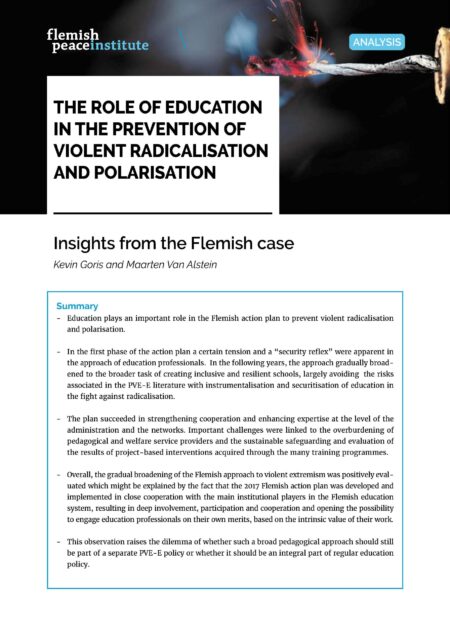The role of education in the prevention of violent radicalisation and polarisation – Insights from the Flemish case
Publication date: 04/05/2022
Education plays an important role in the Flemish action plan to prevent violent radicalisation
and polarisation.
In this analysis (that can be downloaded in full here), Kevin Goris and our researcher Maarten Van Alstein elaborate on the following insights from the Flemish case:
– In the first phase of the action plan a certain tension and a “security reflex” were apparent in
the approach of education professionals. In the following years, the approach gradually broadened
to the broader task of creating inclusive and resilient schools, largely avoiding the risks
associated in the PVE-E literature with instrumentalisation and securitisation of education in
the fight against radicalisation.
– The plan succeeded in strengthening cooperation and enhancing expertise at the level of the
administration and the networks. Important challenges were linked to the overburdening of
pedagogical and welfare service providers and the sustainable safeguarding and evaluation of
the results of project-based interventions acquired through the many training programmes.
– Overall, the gradual broadening of the Flemish approach to violent extremism was positively evaluated
which might be explained by the fact that the 2017 Flemish action plan was developed and
implemented in close cooperation with the main institutional players in the Flemish education
system, resulting in deep involvement, participation and cooperation and opening the possibility
to engage education professionals on their own merits, based on the intrinsic value of their work.
– This observation raises the dilemma of whether such a broad pedagogical approach should still
be part of a separate PVE-E policy or whether it should be an integral part of regular education
policy.
 Download PDF
Download PDF

